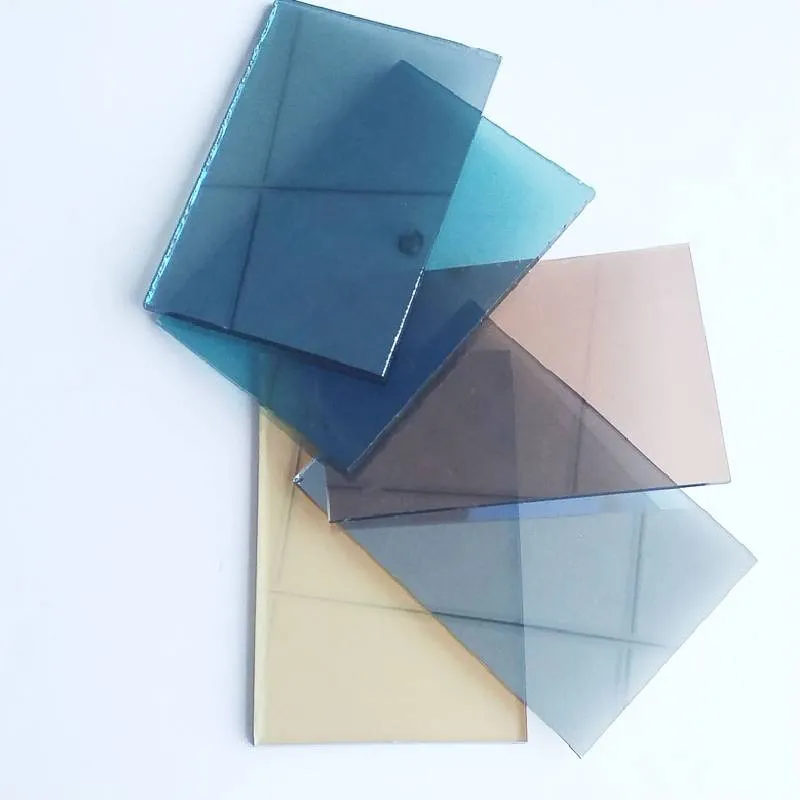The Enduring Appeal of Monolithic Annealed Glass
Monolithic annealed glass, a material long revered for its versatility and aesthetic qualities, has found its place in various architectural and design applications. While its functional properties are well-documented, its intrinsic beauty and adaptability make it an invaluable choice for modern constructions. This article explores its characteristics, benefits, applications, and environmental considerations, illuminating why monolithic annealed glass remains a preferred option among architects and designers.
Understanding Monolithic Annealed Glass
Monolithic annealed glass is produced through a process that involves heating the glass to a specific temperature and then allowing it to cool slowly, a method known as annealing. This cooling process reduces internal stress within the glass, enhancing its strength and reducing the likelihood of breakage under normal conditions. Unlike tempered glass, which undergoes a more rigorous cooling process that makes it significantly stronger and also allows it to shatter into smaller, blunt pieces, monolithic annealed glass breaks more predictably. This feature is particularly advantageous in specific applications where the predictability of breakage behavior is essential for safety.
Aesthetic Qualities
One of the most compelling attributes of monolithic annealed glass is its aesthetic appeal. Available in various thicknesses and dimensions, it can be customized to suit different design requirements. The transparency and light transmission of this glass create an illusion of spaciousness, making it an ideal choice for both residential and commercial buildings. The clarity of the glass allows natural light to flood interiors, reducing the need for artificial lighting and creating a more inviting atmosphere.
Furthermore, monolithic annealed glass can be produced with various finishes, including frosted or etched designs, colored tints, and laminated options, offering endless creative possibilities. Such versatility allows designers to blend functionality with artistry, enhancing the overall appeal of a structure while maintaining essential properties like visibility and light transmission.
Applications in Architecture
monolithic annealed glass
Monolithic annealed glass is widely used in architectural applications, including facades, windows, and doors. Its acoustic insulation properties make it suitable for urban environments where noise control is crucial. Additionally, the smooth surface of annealed glass makes it easy to clean and maintain, further enhancing its practicality as a building material.
In the realm of interior design, this type of glass is frequently employed in partitions, balustrades, and shower enclosures. It creates a seamless transition between spaces while allowing natural light to permeate, contributing to an open floor plan that many contemporary homes and offices aspire to achieve.
Environmental Considerations
As sustainability becomes increasingly important in the construction industry, monolithic annealed glass presents several eco-friendly advantages. Its ability to maximize natural light reduces energy consumption associated with artificial lighting. Furthermore, many manufacturers are now producing glass using recycled materials and sustainable practices, aligning with global sustainability goals.
The use of this glass can contribute to energy-efficient building certifications, such as LEED (Leadership in Energy and Environmental Design), making it a favorable choice for environmentally-conscious architects and builders. The longevity and durability of annealed glass also mean that buildings can benefit from reduced maintenance costs and a longer lifecycle.
Conclusion
Monolithic annealed glass is more than just a construction material; it embodies a fusion of functionality, aesthetic beauty, and sustainability. Its versatility makes it suitable for a range of applications, from grand skyscrapers to cozy homes. As architectural standards evolve and demand for eco-friendly materials increases, monolithic annealed glass will undoubtedly continue to play a crucial role in shaping the environments where we live and work. Its enduring appeal is a testament to the balance it strikes between practicality and elegance, making it a timeless choice for future generations.
 Afrikaans
Afrikaans  Albanian
Albanian  Amharic
Amharic  Arabic
Arabic  Armenian
Armenian  Azerbaijani
Azerbaijani  Basque
Basque  Belarusian
Belarusian  Bengali
Bengali  Bosnian
Bosnian  Bulgarian
Bulgarian  Catalan
Catalan  Cebuano
Cebuano  Corsican
Corsican  Croatian
Croatian  Czech
Czech  Danish
Danish  Dutch
Dutch  English
English  Esperanto
Esperanto  Estonian
Estonian  Finnish
Finnish  French
French  Frisian
Frisian  Galician
Galician  Georgian
Georgian  German
German  Greek
Greek  Gujarati
Gujarati  Haitian Creole
Haitian Creole  hausa
hausa  hawaiian
hawaiian  Hebrew
Hebrew  Hindi
Hindi  Miao
Miao  Hungarian
Hungarian  Icelandic
Icelandic  igbo
igbo  Indonesian
Indonesian  irish
irish  Italian
Italian  Japanese
Japanese  Javanese
Javanese  Kannada
Kannada  kazakh
kazakh  Khmer
Khmer  Rwandese
Rwandese  Korean
Korean  Kurdish
Kurdish  Kyrgyz
Kyrgyz  Lao
Lao  Latin
Latin  Latvian
Latvian  Lithuanian
Lithuanian  Luxembourgish
Luxembourgish  Macedonian
Macedonian  Malgashi
Malgashi  Malay
Malay  Malayalam
Malayalam  Maltese
Maltese  Maori
Maori  Marathi
Marathi  Mongolian
Mongolian  Myanmar
Myanmar  Nepali
Nepali  Norwegian
Norwegian  Norwegian
Norwegian  Occitan
Occitan  Pashto
Pashto  Persian
Persian  Polish
Polish  Portuguese
Portuguese  Punjabi
Punjabi  Romanian
Romanian  Russian
Russian  Samoan
Samoan  Scottish Gaelic
Scottish Gaelic  Serbian
Serbian  Sesotho
Sesotho  Shona
Shona  Sindhi
Sindhi  Sinhala
Sinhala  Slovak
Slovak  Slovenian
Slovenian  Somali
Somali  Spanish
Spanish  Sundanese
Sundanese  Swahili
Swahili  Swedish
Swedish  Tagalog
Tagalog  Tajik
Tajik  Tamil
Tamil  Tatar
Tatar  Telugu
Telugu  Thai
Thai  Turkish
Turkish  Turkmen
Turkmen  Ukrainian
Ukrainian  Urdu
Urdu  Uighur
Uighur  Uzbek
Uzbek  Vietnamese
Vietnamese  Welsh
Welsh  Bantu
Bantu  Yiddish
Yiddish  Yoruba
Yoruba  Zulu
Zulu 

